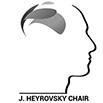Research Training Network: Electron and positron induced chemistry (EPIC).
Grant Agency
European Commission
Topics
Development and Application of Quantum Chemical Methods
Year from
2002
Year to
2005
Project Objectives
The major objectives of the proposed Network are to; (i) Train young researchers in the latest experimental and theoretical techniques for studying electron/positron induced chemistry by providing them with the opportunity to undertake research within internationally renowned research centres. (ii) Provide the most co-ordinated study ever undertaken, either experimental or theoretical, of the fundamental chemistry initiated by the irradiation by electrons and positrons of molecules (from diatomic to macromolecules) and (iii) To develop a new understanding of the basic processes by which such chemical reactions are induced and how such reactions are modified by their local environment.
In particular the Network will:
Different molecular compounds have been selected to illustrate these processes: halogenated hydrocarbons and fluorocarbons; simple biomolecules (e.g. DNA and RNA bases) and water.
The major objectives of the proposed Network are to; (i) Train young researchers in the latest experimental and theoretical techniques for studying electron/positron induced chemistry by providing them with the opportunity to undertake research within internationally renowned research centres. (ii) Provide the most co-ordinated study ever undertaken, either experimental or theoretical, of the fundamental chemistry initiated by the irradiation by electrons and positrons of molecules (from diatomic to macromolecules) and (iii) To develop a new understanding of the basic processes by which such chemical reactions are induced and how such reactions are modified by their local environment.
In particular the Network will:
- 1. Study fundamental electron and positron energy transfer processes.
2. Study electron and positron impact dissociation processes yielding reactive neutral, anionic and cationic species.
3. Study how such processes are modified in the different phases of matter (gases, clusters and on surfaces).
4. Probe new reaction processes initiated in denser phases of matter (e.g nucleophilic substitution).
Different molecular compounds have been selected to illustrate these processes: halogenated hydrocarbons and fluorocarbons; simple biomolecules (e.g. DNA and RNA bases) and water.
prof. RNDr. Čársky Petr DrSc.
Room
105
Department
Extension
+420 26605 3665
E-mail
petr.carsky jh-inst.cas.cz
jh-inst.cas.cz
 jh-inst.cas.cz
jh-inst.cas.czPublications
















